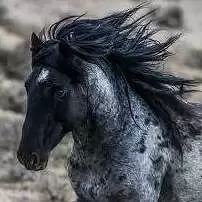-
Welcome to Celiac.com!
You have found your celiac tribe! Join us and ask questions in our forum, share your story, and connect with others.
-
Celiac.com Sponsor (A1):
Celiac.com Sponsor (A1-M):
-
Get Celiac.com Updates:Support Our Content
Salad Dressing
-
Get Celiac.com Updates:Support Celiac.com:
-
Celiac.com Sponsor (A17):
Celiac.com Sponsor (A17):
Celiac.com Sponsors (A17-M):
-
Recent Activity
-
- Katya773 posted a topic in Gluten-Free Foods, Products, Shopping & Medications0
Wholefoods 365 Organic Wheatgrass Powder
Hi Everyone, I recently purchased this wheatgrass not realizing that it wasn’t gluten free. I had two servings before I got really sick. Abdominal cramps , diarrhea and horrible nausea. My daughter read the label and told me it wasn’t labeled gluten free. I thought this was safe because supposedly it’s healthy. I called WholeFoods and they told ... -
- emily 1 replied to emily 1's topic in Coping with Celiac Disease8
Black Pepper Reactions
Yes, unfortunately I was diagnosed about 15 years ago. Some of us I guess the gut never heals and from what I've learned you can actually have a setback which is probably the stage I am at where I actually have become more sensitive to more items. -
- Blue Roan replied to emily 1's topic in Coping with Celiac Disease8
Black Pepper Reactions
Hi Emily! I was just diagnosed a year ago and could not touch nuts, corn (or anything with corn-based ingredients), lactose, or black pepper in the first 8 or so months. Otherwise I had a lot of abdominal discomfort, dizziness/vertigo (especially with corn and pepper) and inflammation throughout the body. I was pretty much eating plain cooked veggies... -
- Blue Roan posted a topic in Related Issues & Disorders0
Irregular periods AFTER going gluten-free?
Hi there, I am 30 and was diagnosed with celiac almost a year ago after a series of severe “unexplained” abdominal episodes. Everything is improving and I am feeling so much better overall except my cycle is worse. Has anyone else had a similar experience? I got my period as a pre-teen and my cycles have been regular for as long as I can remember: ev... -
- John Scott commented on dixonpete's blog entry in Pete Dixon9
A video with researcher William Parker about Helminthic Therapy
You’ve touched on some big issues that really need evidence for a fuller understanding. I agree that we don’t need tuberculosis or trichinosis, and that the reduction in these and many other infections has undoubtedly contributed to the increase in longevity seen in the West in the past century. And yet some infections can actually be beneficial, as...
-




Recommended Posts
Archived
This topic is now archived and is closed to further replies.